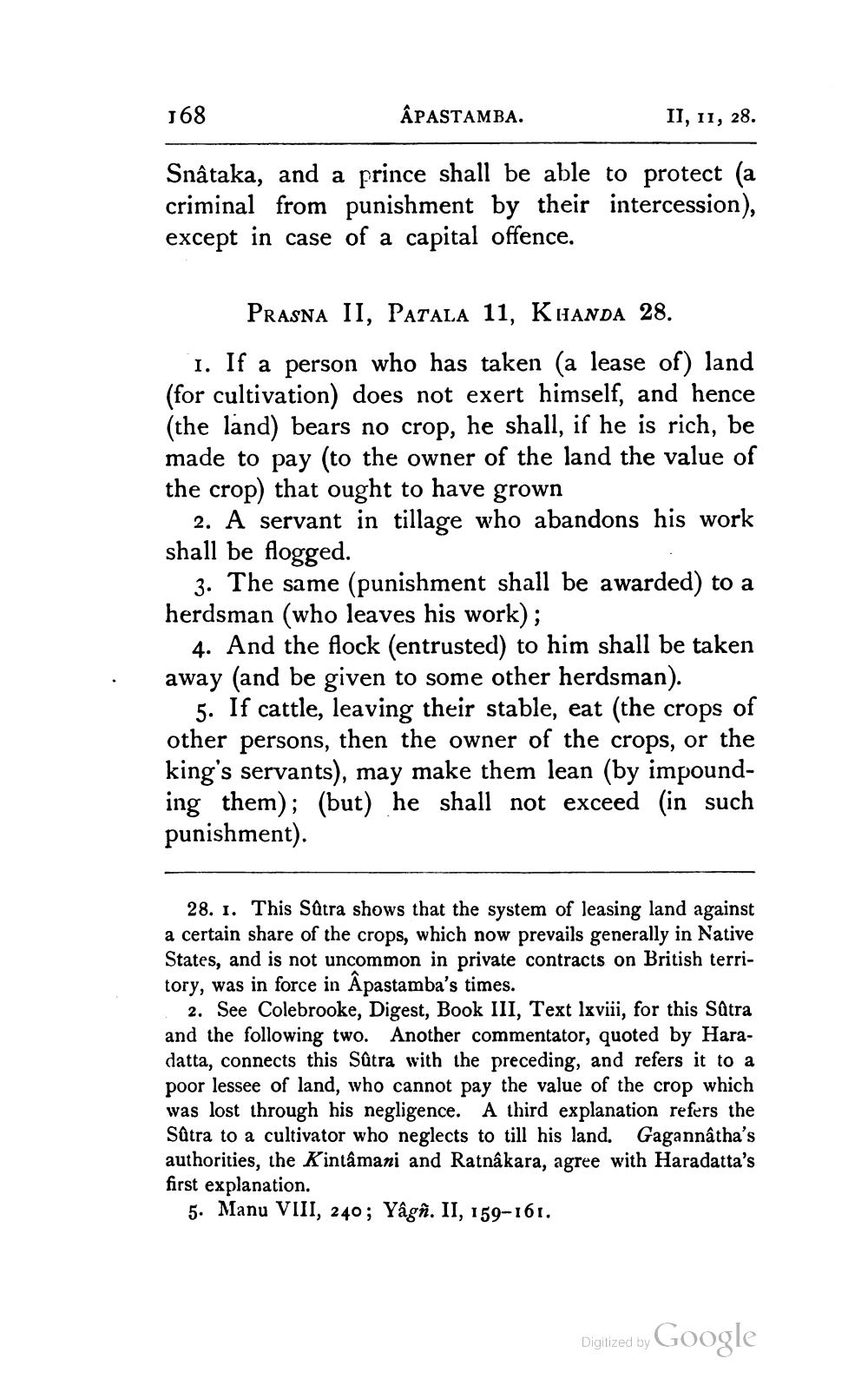________________
168
ÂPASTAMBA.
II, 11, 28.
Snâtaka, and a prince shall be able to protect (a criminal from punishment by their intercession), except in case of a capital offence.
Prasna II, Patala 11, Kuanda 28. 1. If a person who has taken (a lease of) land (for cultivation) does not exert himself, and hence (the land) bears no crop, he shall, if he is rich, be made to pay (to the owner of the land the value of the crop) that ought to have grown
2. A servant in tillage who abandons his work shall be logged.
3. The same (punishment shall be awarded) to a herdsman (who leaves his work);
4. And the flock (entrusted) to him shall be taken away (and be given to some other herdsman).
5. If cattle, leaving their stable, eat (the crops of other persons, then the owner of the crops, or the king's servants), may make them lean (by impounding them); (but he shall not exceed in such punishment).
28. 1. This Sätra shows that the system of leasing land against a certain share of the crops, which now prevails generally in Native States, and is not uncommon in private contracts on British territory, was in force in Âpastamba's times.
2. See Colebrooke, Digest, Book III, Text Ixviii, for this Sätra and the following two. Another commentator, quoted by Haradatta, connects this Sūtra with the preceding, and refers it to a poor lessee of land, who cannot pay the value of the crop which was lost through his negligence. A third explanation refers the Sûtra to a cultivator who neglects to till his land. Gagannatha's authorities, the Kintamani and Ratnakara, agree with Haradatta's first explanation.
5. Manu VIII, 240; Yâgñ. II, 159-161.
Digitized by Google




